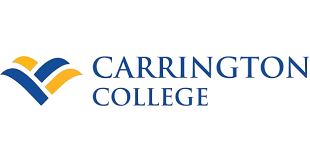
Financial aid (may be available)

Financial aid (may be available)

Financial aid (may be available)

Financial aid (may be available)
$1,800 total
No cost info

No cost info

No cost info
$500 total
$975 total

No cost info

No cost info
$550 total
No cost info
Are you seeking a rewarding career in the healthcare industry and live within the San Bernardino/Riverside area? Consider becoming a Home Health Aide (HHA). This post will provide you with comprehensive information about the HHA profession, training requirements, what to seek in a class, and expectations during training. Additionally, we'll guide you through the certification process, how to find related jobs, and what other courses you can engage in after becoming an HHA.

A Home Health Aide works with patients in their homes, assisting with daily activities such as bathing, eating, and medication administration. They play a crucial role in the healthcare system by providing care for the elderly, chronically ill, or people recovering from surgery or injury who need assistance with daily activities.
The journey to becoming a Home Health Aide starts with proper training. Training requirements may vary slightly depending on the specific needs of the patient population you plan to serve. However, the general requirements include:
A high school diploma or GED: This is often the minimum educational requirement for most HHA training programs.
HHA training program: You'll need to complete a state-approved HHA training program. These programs typically cover basic patient care skills, emergency procedures, and ethical considerations in healthcare.
Clinical experience: Many programs require students to complete a certain number of hours of clinical experience. This hands-on training allows students to apply what they've learned in the classroom in real-world settings.
When searching for a Home Health Aide class, consider the following:
Accreditation: Ensure the program is accredited by the state. This ensures the program meets the necessary standards to provide quality education.
Course content: The curriculum should cover essential topics such as basic patient care, nutrition, infection control, and communication skills.
Hands-on training: Look for programs that offer hands-on training opportunities. This will allow you to apply what you've learned in a real-world setting.
Flexibility: If you're juggling other responsibilities, you may want to look for a program that offers flexible scheduling options, such as evening or weekend classes.
As a student in an HHA class, you can expect to engage in both classroom instruction and hands-on training. Classroom instruction often covers topics like anatomy, physiology, nutrition, and patient care principles. During hands-on training, you'll get the chance to apply these principles under the supervision of a trained professional. This blend of classroom learning and real-world experience is designed to prepare you for the realities of working as an HHA.
After completing your training, the next step is to obtain certification. The certification process typically involves passing a state-administered exam. The exam tests your knowledge and skills in areas like patient care, emergency procedures, and ethical practices in healthcare. Once you pass the exam, you'll be eligible to work as a certified HHA.
Finding a job as an HHA can be facilitated through various resources, including online job boards, networking events, and healthcare recruitment agencies. You can also leverage the career services offered by your training program. They can provide job placement assistance, resume writing help, and interview preparation.
After becoming an HHA, there are numerous other classes you can take to expand your skills and increase your employment opportunities. For example, you might consider training to become a Certified Medication Aide. This would allow you to administer medication to patients under the supervision of a nurse.
Alternatively, you might consider training to become a Certified Nursing Assistant (CNA). CNAs provide basic care to patients and assist them with daily activities they might have trouble with on their own.
Becoming an HHA is just the first step in a potential career ladder in the healthcare industry. With additional training and education, you can move into more specialized roles like a Licensed Practical Nurse (LPN), Registered Nurse (RN), or Physical Therapy Technician. These roles offer increased responsibilities and opportunities for higher compensation.
Continuing your education beyond your initial HHA training can help you stay up-to-date with the latest best practices in healthcare. It can also make you more marketable to employers and increase your opportunities for career advancement.
Technology is increasingly playing a significant role in home health care. From electronic health records to telemedicine, understanding how to use these tools effectively can enhance your ability to provide high-quality care to your patients.
Becoming a Home Health Aide can be a fulfilling career choice, especially if you have a passion for helping others. With the right training and dedication, you can play a crucial role in improving the quality of life for individuals in need. Whether you're just starting your journey or looking to advance your career, consider the various opportunities available to you in the San Bernardino/Riverside area.
Consider Dreambound as a valuable resource if you're thinking about getting started in this field. We've written many guides to help with the different parts of the certification process across the country:
Weighing the possibilities of a career shift ? Dreambound has written many extensive guides to guide you in making informed decisions. Check out some of these resources below:
Dreambound's platform allows prospective students to find the right educational program for them through searching, filtering, and connecting with our extensive selection of career & technical education partners.
Dreambound has over 70 programs across healthcare, technology, business, and industrial trades. This includes programs such as Medical Billing, Cybersecurity, and welding.
Some of our schools offer financial aid for those who qualify. Many others offer payment plans, where you can pay the cost of class over time.
Yes, Dreambound offers many online programs. On Dreambound's search, you can filter by online, in-person, and hybrid (part online, part in-person).
Dreambound is completely free for you to use! We are supported by schools and organizations who pay to advertise on our website, so we can offer all of our career resources for free.